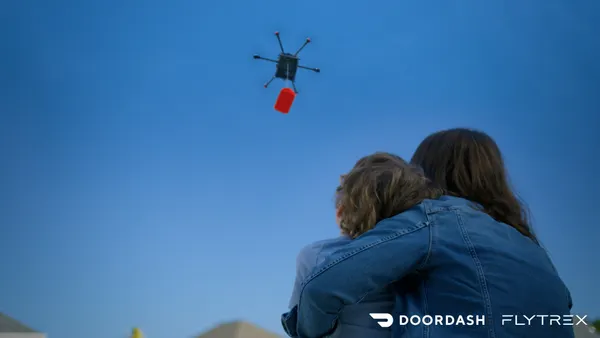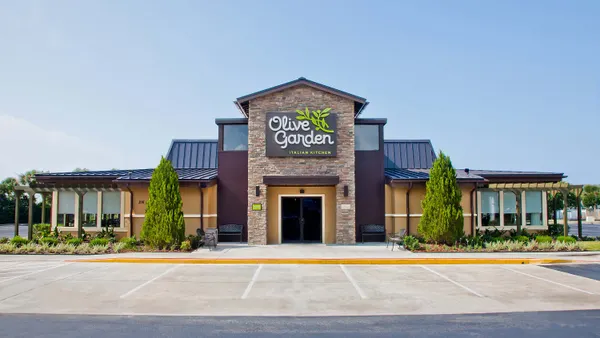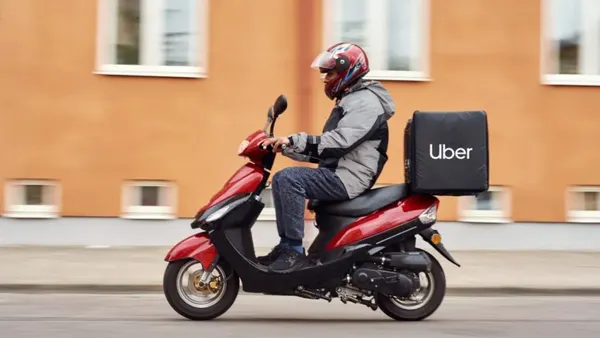Dive Brief:
- After announcing the merger in May, Tilman Fertitta’s Landcadia Holdings officially bought delivery service Waitr for $308 million and started trading under the ticker symbol “WTRH” on Friday, the companies announced in a release. Landcadia, which was already public, will now operate as Waitr Holdings.
- Waitr founder and CEO Chris Meaux and his executive team will stay in their roles at the newly combined company, with Meaux serving as chairman of the board of directors and Fertitta as director.
- The 5-year-old, Louisiana-based company works with 7,700 restaurants in 235 cities in the southeast U.S., primarily in small and mid-sized markets. Fertitta, who owns Landry’s 600-unit restaurant group, said in the release that Waitr is "positioned well to take advantage of the massive unpenetrated market for online delivery, particularly in secondary markets.”
Dive Insight:
Waitr now has the opportunity to blossom across the country, aided by stock market recognition and Landry’s broad reach. When announcing the pending deal this spring, both companies anticipated excess cash to fund new market growth and “opportunistic acquisitions.” Though Waitr already works with some of Landry’s restaurants, it will become the group’s exclusive delivery partner and will open avenues to other partnerships, potentially to the Houston Rockets, which Fertitta also owns.
According to Meaux, Waitr leads in each of its markets, netting $23 million in 2017 revenue while expecting over 300% growth this year to reach up to $68 million. Its 6,000 or so delivery drivers work for Waitr rather than as contractors, which no doubt aids quality control, and it charges restaurants a flat 15% fee, versus the fluctuating commissions preferred by competitors.
Analysts presume Landcadia was formed with the goal of acquiring a fast-growing food startup where Fertitta could step in and use his leverage in the industry to develop the brand into a powerhouse. Valued at about $10 a share, they believe Waitr’s stock offers tremendous value to investors, too, as the company’s growth rate far outpaces competitors.
Grubhub controls just over half of the delivery market with 80,000 restaurant partners in 1,600 cities and $1.2 billion in sales. In 2017, it reported $683 million in revenue and a 20% increase in daily orders to 334,000, while active diners jumped 77% — from 8 million to 14.5 million. Its stock lingers around $100 a share, up from $34 when it went public for $2 billion in 2014.
Worth an estimated $200 billion, food delivery seems to be thriving off the competition among players big and small, and the savvy ones are poised to expand into other aspects of running a restaurant. In addition to integrating with POS systems, Meaux anticipates building out a proprietary POS, table management and loyalty program.













